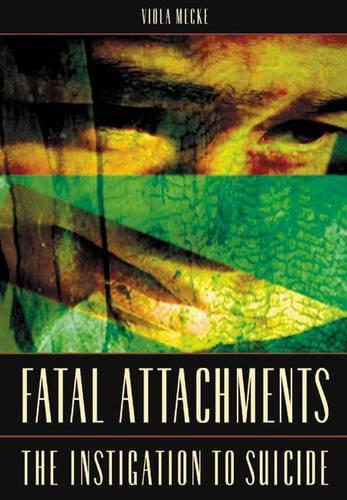
Fatal Attachments: The Instigation to Suicide
(Hardback)
Publishing Details
Fatal Attachments: The Instigation to Suicide
By (Author) Viola Mecke
Bloomsbury Publishing PLC
Praeger Publishers Inc
30th June 2004
United States
Classifications
General
Non Fiction
Psychology
Neurology and clinical neurophysiology
362.28
Physical Properties
Hardback
216
Width 156mm, Height 235mm
482g
Description
Five-year-old Tommy killed himself at home, where he lived with parents who said he was unwanted and deficient. College student Jennifer committed suicide by swallowing a huge mixture of pills at a motel, to escape an imposing, unemotional mother who had long thought the girl a burden. Bob, a father of two, might have survived his attempt at suicide, but his wife did not call the emergency services for 10 minutes after she found him in his car in the garage with the engine running. All of these cases share a common factor; each person was clearly motivated by an instigator - someone who provoked the suicide. Instigators create a crushing relationship with a potentially suicidal person that becomes a "fatal attachment." Viola Mecke, with more than 40 years experience as clinical psychologist, believes instigators are responsible in a significant number of suicides. Through vivid and compelling text, we understand the minds of suicide victims and their instigators, and also learn how early trauma associated with death or abandonment can make one become an instigator. Finally, Mecke shows how we can intervene to try and break the instigator's grip, to foil the attachment. One of her primary points, relating to both the suicidal and their instigators, is that children require careful nurturing especially during their early lives. "And the bent their personalities take following a trauma places responsibility upon us all to watch, to explain, to care for them". In addition to tragic stories drawn from her practice, Mecke also describes the instigators in larger scale suicides and those of historical figures - from the cult suicide of hundreds moved by Jim Jones at Jamestown, and the suicide bombings motivated by Osama bin Laden, to the suicide of poet Sylvia Plath. Classical literature and Greek mythology is also used extensively to address the issue of what triggers suicide. The insights apply universally. This is a an essential read for clinicians, counsellors and anyone interested in knowing about suicide and its causes.
Reviews
.,."[P]resents a compelling discussion of the human context of suicide, enriched by examples from case histories, modern literature and mythology. She shows us that suicide is not an isolated individual act; it reflects a failure of relationships and is often instigated by a significant person in the suicidal person's life. This book has much to offer the general reader and it will give clinicians a new understanding of suicide and its interpersonal antecedents."-Mary Ann Norfleet, Emerita Clinical Professor, Department of Psychiatry, Stanford University
"[Mecke's] daring hypothesis is that...suicide is often caused, created, fostered, exacerbated by an active instigator upon a subtly designated scapegoat. This instigator has a freighted psychodynamic history of his own relating to death. Viola Mecke's careful spelling out of this drama is scholarly and fascinating, calling as she has done on both extensive case histories and classical mythology."-Edwin S. Shneidman, Founder, American Association of Suicidology Professor of Thanatology Emeritus, University of California, Los Angeles
"Viola Mecke has developed a dynamic theory of suicide that should be read by every psychotherapist who works with depressed patients and every person who has a severly depressed relative or friend."-Jerry H. Clark, Formerly Chair, National Association for the Advancement of Psychology
Author Bio
Viola Mecke is a clinical psychologist with more than 40 years experience in private practice and teaching.
